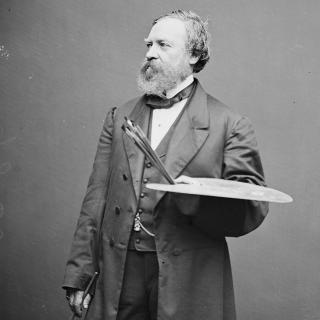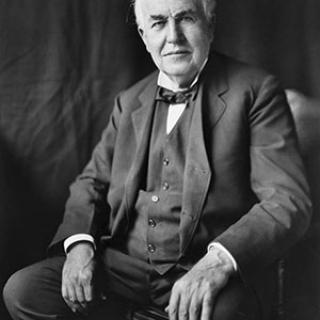In 1848, 76 Enslaved Persons Attempted to Escape Bondage in D.C. Aboard The Pearl
1848 was a busy year for the residents of Washington, D.C. The Washington monument was under construction and Congress was hotly debating the question of slavery in the new territories. Closer to home, most white Washingtonians favored slavery though many had objections to actual slave-trading taking place in the capital. D.C.’s large free black population, which contained a great many marriages between enslaved and free, sought freedom for those who didn’t yet posses it, and were spurred by an increasing number of abolitionists flocking to the city.
To put it mildly, Washington was a tense place in April 1848, and it was about to get even more so. Enter the Pearl.
The Pearl was a small schooner hired by abolitionist sympathizer Daniel Drayton to aid a black family in escaping the city. The family -- Daniel and Mary Bell, their children and grandchildren -- were legally free but had run out of money defending their status in court and faced the risk of being captured and sold back into slavery. Abolitionists including William Chaplin provided the financial backing for the mission and Drayton took care of the details.
Upon arriving in Washington a few days before the voyage, Drayton met with one of his contacts who told him that the scope of the plan had changed significantly since it was was first hatched. Word about the planned escape had spread and, understandably, a great many slaves were interested. Drayton was not deterred. He said that he would take anyone who arrived on the boat “before eleven o’clock … the others would have to remain behind."
Late in the evening on April 14, some 76 slaves from across the city slipped through fields and streets and made their way to the wharf in Southwest. They boarded the Pearl as quietly as they could under the cover of darkness and apparently avoided detection, save for two witnesses. One sympathized with their plight, and promised not to tell. The other, a driver named Judson Higgs who had been hired to take two of the slaves to the Pearl, was less sympathetic. Frustrated that his passengers were unable to immediately pay him for the ride, Higgs’s vengeance would prove to be the downfall of the Pearl.
The Pearl set sail in the middle of the night of April 14. Finding the skies in a dead calm, the ship was forced to anchor just a few miles out of port and wait with its illegal cargo until the sun rose and the wind picked up. When it resumed sailing in the morning, the Pearl encountered only idle curiosity as it moved easily down the Potomac. However, approaching the mouth of the river, about 140 miles from Washington, winds prevented the ship from making an easy passage north. Drayton urged the captain to go north by way of the Atlantic, but Captain Edward Sayres dissented fearing that the boat would not survive the open sea. So, instead of proceeding, passengers and crew sheltered in a nearby harbor and tried to rest, hoping against hope that any pursuit would be delayed.
They would not be so lucky. At daybreak, slave-owners in Washington and the surrounding towns awoke to find their slaves gone and were outraged. Authorities were pointed in the right direction by Judson Higgs and a steam boat, the Salem, was sent in pursuit of the Pearl.
The Salem caught up to the Pearl while its passengers slumbered near Point Lookout, Maryland. Quickly boarding the ship, the captors locked the ship’s hatches. Listening to the many boots and muskets of their captors pound the deck above their heads must have been terrifying. The slaves would have fought for their freedom, but Drayton advised caution. They were far outmatched both in numbers and in firepower. Having no choice but to come peacefully, Drayton and the others gave themselves into the hands of those of the Salem. They were towed up the river to face the consequences for their actions.
Their arrival back in the capital spurred a three-day plague of mob violence in D.C. Drayton and Sayres faced trials and jail time and the majority of the slaves were resold to plantations in the Deep South. The Pearl’s other crewman and cook Chester English, was absolved of any guilt in the affair as he had no knowledge of their "cargo" or destination.
Over 160 years later, the Pearl incident remains one of the most heroic and tragic episodes in local history.


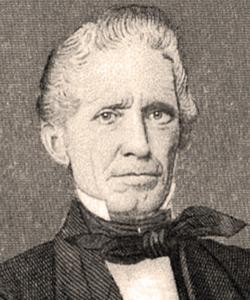
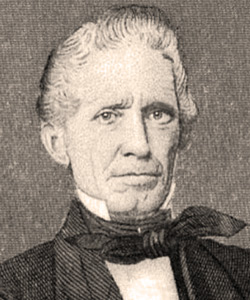
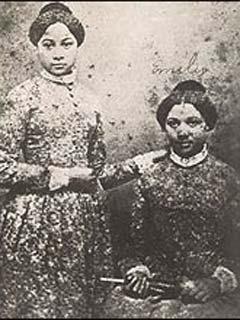
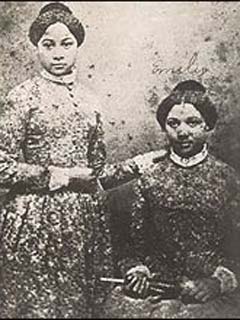
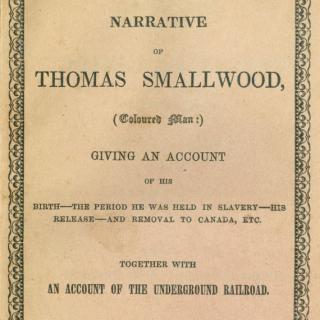
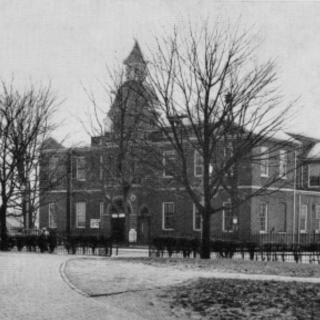

![Sketch of the mythical fuan by Pearson Scott Foresman. [Source: Wikipedia]](/sites/default/files/styles/crop_320x320/public/2023-10/Goatman_Wikipedia_Faun_2_%28PSF%29.png?h=64a074ff&itok=C9Qh-PE1)








